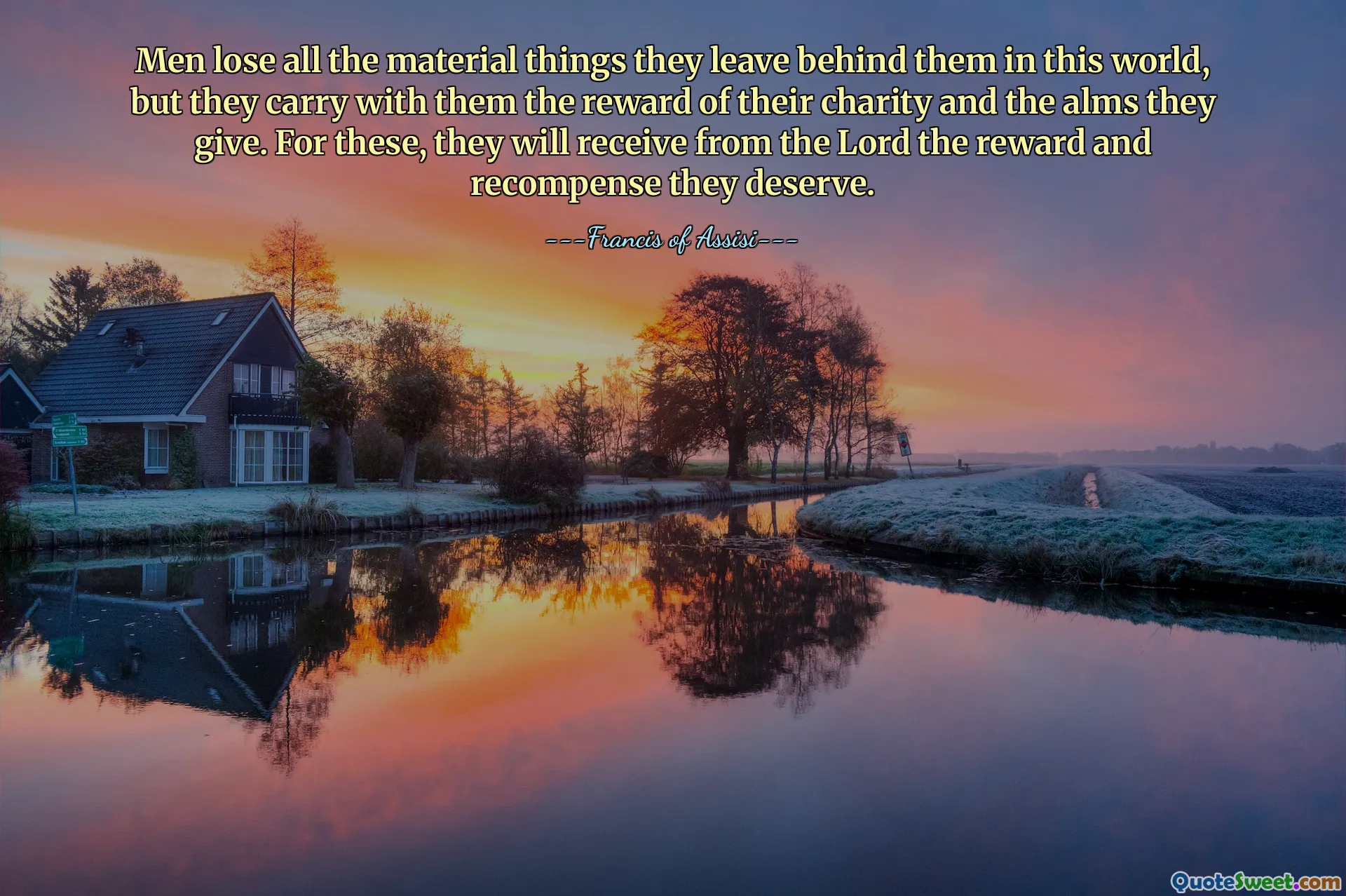
Men lose all the material things they leave behind them in this world, but they carry with them the reward of their charity and the alms they give. For these, they will receive from the Lord the reward and recompense they deserve.
📖 Francis of Assisi
This quote beautifully highlights the transient nature of worldly possessions versus the enduring value of charitable actions. Material wealth may be accumulated, but ultimately, it remains a temporary asset, left behind after one’s passing. In contrast, the acts of kindness and generosity—symbolized here by charity and alms—represent a form of spiritual wealth that transcends mortality. They are not merely good deeds but investments into an eternal reward, affirming the belief that moral and spiritual legacy is what truly lasts.
Reflecting on this from a modern perspective, while society often prioritizes material success, this quote invites a reevaluation of what we consider valuable. It is a reminder that accumulating possessions alone provides no guarantee of lasting significance or fulfillment. Instead, the good that we do for others and the compassion we show create ripples beyond our physical existence, impacting both others and ourselves in profound ways.
The emphasis on divine recompense adds a spiritual dimension, suggesting that acts of generosity are recognized and rewarded by a higher power, encouraging a life oriented towards selflessness and service. This mindset fosters resilience against the temptation to equate self-worth with material accumulation, fostering deeper purpose and meaning.
In sum, the quote prompts introspection on legacy and the true sources of lasting wealth—encouraging a life devoted not only to possessing but more importantly, to giving generously and compassionately.







